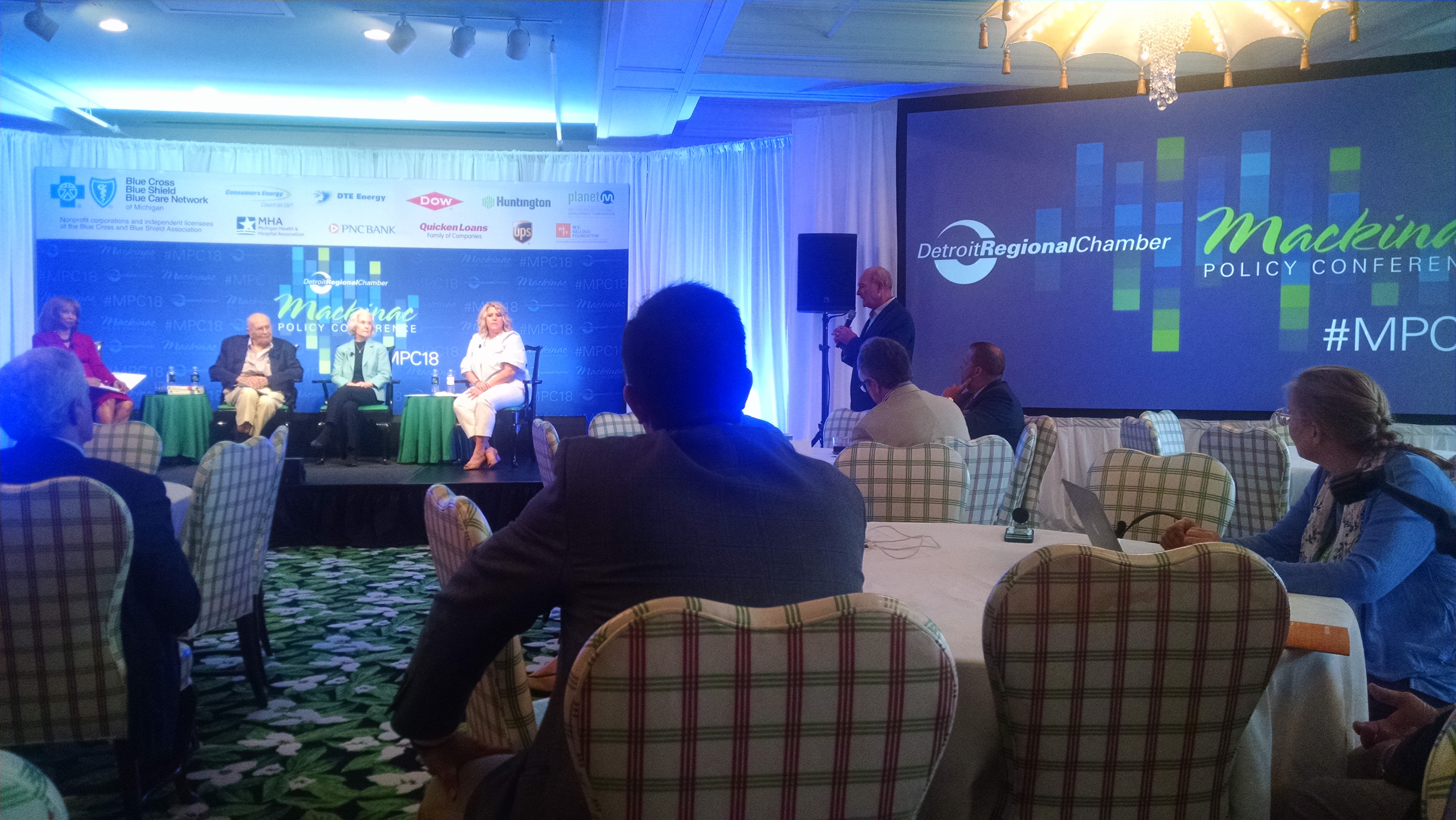“The Future is Now: Are You Ready?”
 MACKINAC ISLAND -- Michigan has a ways to go to position itself as a leader in advancing quality-of -life technologies, such as autonomous vehicles, telehealth and broadband reach, according to a distinguished panel at the Mackinac Policy Conference Thursday afternoon May 31st.
MACKINAC ISLAND -- Michigan has a ways to go to position itself as a leader in advancing quality-of -life technologies, such as autonomous vehicles, telehealth and broadband reach, according to a distinguished panel at the Mackinac Policy Conference Thursday afternoon May 31st.
The hour-long AARP Michigan session was entitled “The Future is Now: Are You Ready?”
“These technologies are shaping our present and can transform our future,” said Paula D. Cunningham, AARP Michigan State Director, who moderated the panel.
 The prospect of autonomous vehicles holds massive potential for solving transportation issues for everyone, including older adults. General Motors announced today investments that put the company on track to put driverless cars on the road by next year.
The prospect of autonomous vehicles holds massive potential for solving transportation issues for everyone, including older adults. General Motors announced today investments that put the company on track to put driverless cars on the road by next year.
Driverless cars also have the potential to save thousands of lives by removing human driver error, which contributed to more than half of roadway fatalities in Michigan in 2017. Driver error, such as improper lane changes, speeding, or failure to stop contributed to more than 700 traffic deaths that year, according to Michigan State Police.
“This is something that’s coming, but this is a nation that is totally unprepared for this right now,” said panel member John Dingell, former Michigan Congressman, who held the office for a record-setting 59 years. “Laws have to be adopted. We have to have organizational support. Actions are needed by state and local governments. We’re not ready yet.”

An EPIC/MRA survey question commissioned in December by AARP indicates Michiganders are not so sure about driverless cars. Across all age groups, 40 percent are very open to or interested in the potential of autonomous vehicles, while 58 percent are skeptical about their potential or vow never to set foot in one. Not surprisingly, the numbers are even less optimistic for older adults: 35 percent are open or interested, 62 percent are skeptical or disapproving.
Telehealth technology can vastly improve health care access, especially for those who are home-bound or who live in remote areas where doctor visits are a major undertaking.
It has the potential to result in better access to care; reduce transportation barriers and improve outcomes for the care recipient.
“Telehealth or telemedicine has the potential to change our lives in just as dramatic a fashion as autonomous vehicles… especially in remote or underserved areas,” said panel member Nancy McKeague, senior vice president and chief of staff for the Michigan Health and Hospital Association. “But the laws and regulations lag behind the policy right now. It will be an evolving debate.”
Broadband expansion to every rural and urban corner of the state, no matter how remote or underserved, can usher in real possibilities for the future of all Michiganders.
As it stands, nearly 40 percent of people living in rural areas in Michigan have no access to high speed broadband. In some counties it’s 100 percent. A bill before the State Legislature would open avenues for broadband expansion.
Use and adoption of broadband, improves all areas of life and according to the National Broadband Plan, is “a foundation for economic growth, job creation, global competitiveness.”
“The governor called for expansion of broadband in his State of the State address, but legislation is needed to help make it happen,” said Melissa Seifert, AARP Michigan associate state director for governmental affairs. Seifert added that some kind of subsidy will be needed to expand broadband in areas where the low number of customers don’t make it profitable for telecommunications providers to expand the high-speed technology.
Rochester Hills Mayor Bryan Barnett, who was an audience responder at the event, said these technological advances “are coming. We must embrace them, and break down barriers.”

Chris Holman, CEO of the Michigan Business Network and President of AARP Michigan, added: “The most important thing coming out of this is opportunity. This brave, new world excites the small business community.”












